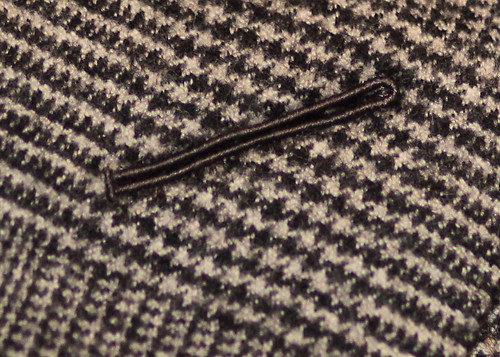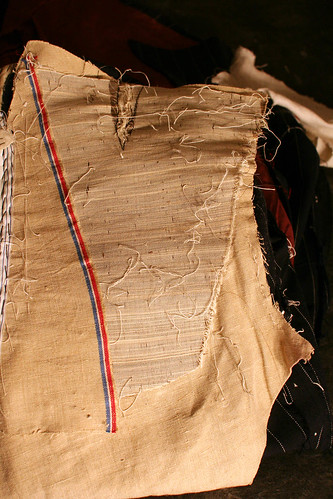My copy came in the mail this week.
O'MAST from Kid Dandy on Vimeo.
One of the few pleasures that I have derived from working in tailored clothing factories, as opposed to working in a tailor shop, is that there are invariably a sizable group of old guys from the old world who like nothing better than to sit around, shooting the breeze and talking about what life was like back in the day. Back in the day meaning, of course, back in Italy. I could almost write a book. In fact, maybe someday I will.
O'Mast, a documentary by Gianluca Migliarotti, is an intimate portrait of some of the last remaining Neapolitan tailors and their clients. Perhaps lacking in a definite story or arc, it was exactly like sitting around on a coffee or lunch break with the guys. Only missing was coffee. While the stories had an immediate appeal for me because they were so familiar, one thing jumped out at me for the first time, if only because of the context of some of the recent political discourse.
(If you're interested, and if you are a regular reader of this blog I should think you
will be interested, the DVD is only about $25 and cad be
had at the Armoury's website. The Armoury is in Hong Kong but shipping was super fast.)
It's a story I have heard a thousand times if I have heard it once. At age 11 or 12, a young boy would be sent to the tailor shop to apprentice. Maybe after school. Maybe afternoons. Maybe he would drop out of school entirely. His pay, if he were lucky enough to get any, might be 100 to 150 lire a week. He would ride his bike from his village several miles to the nearest bus or train, where he would spend his weekly salary on train fare into the city. The lucky ones might have enough left at the end of the week to buy a cup of coffee, though not likely. At Christmas the master expected a gift or tribute of some sort to thank him for the time he spent training the young apprentice. The system produced some of the best tailors in the world, and helped drive the eventual cachet of the "Made in Italy" brand.
Perhaps I have become desensitized to the story, having heard it so many times. More likely I can relate in a sense since, like so many other pursuits, it is generally agreed that one must start early in life in order to gain a proper mastery; piano lessons, ballet lessons, gymnastics... those who become successful at these pursuits are more likely to have started lessons at age six than at age 20. Something to do with the
10,000 hour rule.
Those readers who are fortunate enough to be insulated from the Republican primary season here in the U.S. will have missed Newt Gingrich's recent assertion that
poor children should be made to work as janitors in school. My initial reaction was, naturally, one of shock and indignation. He did, suggest, however, that they be paid some sort of wage, which is more than can be said for the tailor's apprentice. So what was a charming story about learning the craft of tailoring now has the taint of child labor. How do I reconcile the two?
I'm not sure that I can.
It's one thing to say that it was an economic necessity and a part of the harsh reality of post-war Europe that children had to be sent out at a young age to work, essentially, for free, with the only benefit being that they were learning a marketable skill. But the same logic could be applied to Newt's argument and I'm not sure that's a good thing. It also highlights the question of whether such a training regimen was really necessary in order to create the generation of craftsmen that is currently disappearing and is not likely to be replaced without such a draconian system of apprenticeship.
While I am certain that each of the tailors interviewed in the film would tell you that they were entirely thrilled to have had the chance to apprentice as they did, I am equally convinced that not one of them would send his own child out to repeat the process.
I don't really have a point here. I'm just thinking out loud. In print. Whatever.















